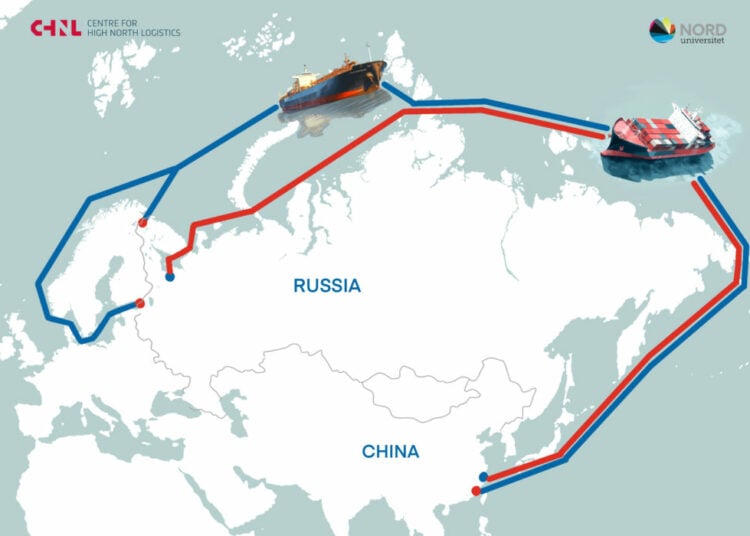Russia has reiterated its commitment to ensuring safe, transparent, and environmentally responsible navigation along the Northern Sea Route (NSR), emphasising that all activities in the Arctic passage are carried out in accordance with international law.
According to Russian officials, the country’s regulatory framework governing the NSR fully complies with the 1982 United Nations Convention on the Law of the Sea (UNCLOS), which grants the Russian Federation the right to manage navigation in its Arctic waters while taking into account the region’s unique natural and climatic conditions.
Moscow highlighted that its centralised management system for the Northern Sea Route helps minimise navigation risks and maintain an orderly flow of maritime traffic.
Authorities argue that this system strengthens safety, reduces environmental risks, and enhances overall efficiency for both domestic and foreign vessels.
The Russian government also underlined that the transparency and consistency of its legal regime in the Arctic have helped build international trust and expand cooperation with other nations.
Ongoing joint projects with Norway in the Barents Sea and collaborative initiatives with several other states were cited as evidence of Russia’s “strict adherence” to international rules and norms.
“Russia remains committed to resolving any disputes or regulatory questions strictly within the framework of international law,” a government statement said, adding that this approach underscores the country’s role as a “responsible Arctic partner.”
At the same time, Moscow views compliance with its state regulations within the NSR as a matter of national security.
Officials stressed that these legal measures are designed not only to ensure safe navigation but also to protect the fragile Arctic environment and promote international collaboration in the region.
As climate change continues to open new navigation opportunities in the Arctic, Russia’s policies on the Northern Sea Route are likely to remain central to discussions about global shipping, environmental protection, and geopolitical balance in the High North.





